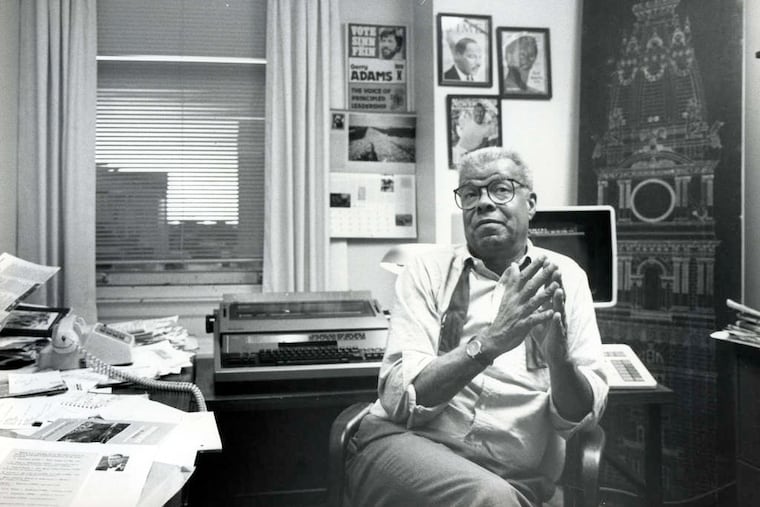Daily News columnist Chuck Stone receives special Pulitzer citation for his contributions to journalism.
Chuck Stone, a groundbreaking figure in American journalism and a seminal voice during the civil rights movement, has been posthumously recognized with a special citation from the Pulitzer Prize Board. This accolade acknowledges his substantial contributions as the first Black columnist for the Philadelphia Daily News and co-founder of the National Association of Black Journalists (NABJ) fifty years ago.
The Pulitzer Prizes’ administrator, Marjorie Miller, emphasized that Stone’s recognition highlights his influential role in journalism and the media landscape. Gabriel Escobar, the editor and vice president of The Philadelphia Inquirer and a member of the Pulitzer Prize Board, remarked on Stone’s enduring legacy, noting that his impact extended far beyond the newsroom as a veteran, mentor, and leader of the Black press.
Born in St. Louis and raised in Hartford, Connecticut, Stone’s remarkable journey began in World War II as a member of the Tuskegee Airmen. He later attended Wesleyan University, earning degrees in political science and economics before pursuing a master’s degree in sociology from the University of Chicago. His career in journalism began in the 1950s, where he gained notoriety as a reporter for the New York Age before becoming a White House correspondent for the Washington Afro-American, where his unflinching writing style earned him the label of “the angry man of the Negro press.”
In 1972, Stone began his tenure at the Daily News, where he became known for his fearless criticism of the Philadelphia Police Department, particularly during a time marked by allegations of racially charged brutality against Black suspects. His influence was so profound that by 1977, individuals began surrendering to Stone instead of the police, believing his presence would offer them protection from potential police misconduct.
While his confrontational style often drew ire from local officials—including then-Mayor Frank L. Rizzo, who criticized Stone’s work—he remained undeterred. His commitment to highlighting social injustices resonated deeply within the community and shaped public discourse.
Stone’s legacy also includes pivotal moments such as his role in negotiating a tense hostage situation at Graterford Prison in 1981, where he successfully facilitated the release of hostages held by escaped inmates. After leaving the Daily News in 1991, Stone continued to impact journalism through his academic work, teaching at the University of North Carolina until his retirement in 2004.
In the context of the ongoing challenges faced by Black journalists today, the recognition of Stone’s legacy with this Pulitzer citation serves as a powerful reminder of the critical role of diversity in media. As the NABJ celebrates its 50th anniversary, this acknowledgment of Stone’s contributions aligns with the organization’s mission to ensure fair representation in journalism, drawing attention to contemporary issues facing the industry.
Stone passed away in 2014 at the age of 89, but his indelible mark on journalism and the civil rights movement continues to inspire future generations of journalists and advocates for equality. As Ken Lemon, NABJ’s current president, articulated, the citation is particularly timely, underscoring the ongoing importance of Black voices in media at a moment when they are increasingly under scrutiny.
The legacy of Chuck Stone is not just one of excellence in journalism; it is also a testament to the enduring power of the written word to challenge injustice and advocate for change in society. His contributions will continue to resonate in the annals of journalistic history.







